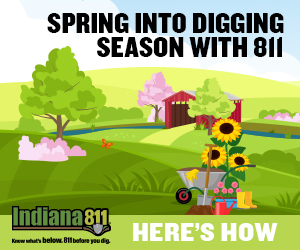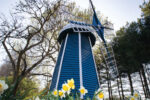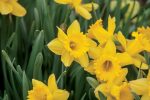How to Decipher Gardening Catalogs
Invitations to explore the world of plants will soon fill our mailboxes. Mail-order and online catalogs announce the upcoming growing season with great excitement and introduce us to plants to satisfy our green thumbs.
This past year, the pandemic encouraged thousands of first-timers to take up gardening – and they will be on the hunt for something new and different for 2021. Even experienced gardeners peruse these catalogs for something exciting to add to their landscape. However, each may fall prey to alluring words and photos.

Color Clues
Take the color blue, for instance.
“People need to be aware blue is not necessarily blue, but possibly something somewhere between lavender and purple,” says Irvin Etienne, curator of herbaceous plants and seasonal garden design at Newfields, formerly the Indianapolis Museum of Art.
Carol Michel, an Indianapolis-based award-winning garden blogger (maydreamsgardens.com) and author, seconds Etienne’s warning about blue. “Blue rose, blue tomato, anything blue that you’ve never seen before in blue is probably purple,” she said.
A Word of Caution
Some words suggest invasiveness, said Ellen Jacquart of Ellettsville, president of the Indiana Native Plant Society and an invasive plant specialist. “Easy-to-grow,” “fast grower,” “forms a carpet” and “self-seeds” are phrases that may indicate aggressive or invasive behavior, she says.
Rare also may necessitate caution. It implies hard to find, but also could mean difficult to grow (which is why it’s hard to find).
Growing Pains
The term “growing habit” didn’t seem to mean much to Nancy Crowe when she first started gardening.
“A plant may have a compact growing habit, but the compactness may depend more on light than the plant’s genetic code,” says Crowe, a Fort Wayne-based writer and an Allen County Advanced Master Gardener. “A lot of variables affect how a plant grows. I didn’t quite get that when I started reading garden catalogs.”
Sometimes the word “new” can be a draw. “New” may mean a new introduction in the nursery trade, or it may mean new to that catalog. That didn’t matter for Bob Hill, who owned and operated Hidden Hill Nursery and Sculpture Garden in Utica for 19 years. The nursery closed in 2018.
“I was always taken by the words ‘newer cultivar,’ even as I knew nothing of the original. That was back in my days when staying on top of the new stuff mattered a lot more,” Hill says.
“I do admit being a sucker for plants with poetic to over-the-top descriptions, even as I feel sorry for the person having to write those eight hours a day. Who can resist ‘a bold charmer with flowing mauve colors that will remind you of an Arizona sunset’? Sold. Just to help the poet,” he says.










 My Indiana Home is produced for Indiana Farm Bureau members. Our mission is to connect you with the food you eat, the Indiana farmers who grow it and a rural lifestyle that is uniquely Hoosier.
My Indiana Home is produced for Indiana Farm Bureau members. Our mission is to connect you with the food you eat, the Indiana farmers who grow it and a rural lifestyle that is uniquely Hoosier.
Leave a Comment